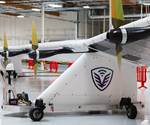AeroVironment acquires Pulse Aerospace
Pulse Aerospace LLC expands AeroVironment's development capabilities for small vertical takeoff and landing (VTOL) unmanned aircraft systems (UAS).
AeroVironment Inc. (Monrovia, Calif., U.S.) has acquired Pulse Aerospace LLC (Lawrence, Kan., U.S.), a developer and supplier of small vertical takeoff and landing (VTOL) unmanned aircraft systems (UAS), for $25.7 million.
In connection with the transaction, Pulse Aerospace’s Lawrence, Kansas facility will become AeroVironment Innovation Center — Midwest, with a focus on small VTOL unmanned aircraft and mission planning solutions. AeroVironment expects the transaction to be accretive to its earnings by the third full year of operations.
Pulse’s HeliSynth technology is said to bring flight control, payload and endurance capabilities to market at attractive price points for both defense and commercial end markets. Pulse recently received a multi-year contract award with a maximum value of more than $13 million from an undisclosed defense customer for its Vapor unmanned VTOL systems, spares and services.
“The talented Pulse Aerospace team has created a solution set that is unique and will expand our family of unmanned systems by addressing increasing demand from our customers for small VTOL solutions,” says Wahid Nawabi, president and CEO of AeroVironment. “We are excited to join together to realize the full benefits of this transaction as we employ key, future-defining technologies such as robotics, sensors, software analytics and connectivity.”
“AeroVironment’s global market presence dramatically increases the reach of Pulse’s VTOL UAS technology,” says Aaron Lessig, CEO of Pulse Aerospace LLC. “Pulse’s offering expands AeroVironment’s mission capabilities with increased payload capacity, which broadens customer use cases. We look forward to growing AeroVironment’s share of the global unmanned systems market together.”
AeroVironment Inc. also recently announced the development of its first robotics and UAS engineering center in New England, as well as the assembly of its first HAWK30 composites-intensive, solar-powered unmanned aircraft.
Related Content
-
Microwave heating for more sustainable carbon fiber
Skeptics say it won’t work — Osaka-based Microwave Chemical Co. says it already has — and continues to advance its simulation-based technology to slash energy use and emissions in manufacturing.
-
Recycling end-of-life composite parts: New methods, markets
From infrastructure solutions to consumer products, Polish recycler Anmet and Netherlands-based researchers are developing new methods for repurposing wind turbine blades and other composite parts.
-
TU Munich develops cuboidal conformable tanks using carbon fiber composites for increased hydrogen storage
Flat tank enabling standard platform for BEV and FCEV uses thermoplastic and thermoset composites, overwrapped skeleton design in pursuit of 25% more H2 storage.

.jpg;width=70;height=70;mode=crop)
.JPG;maxWidth=150;quality=70)













